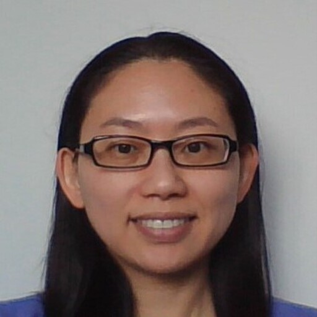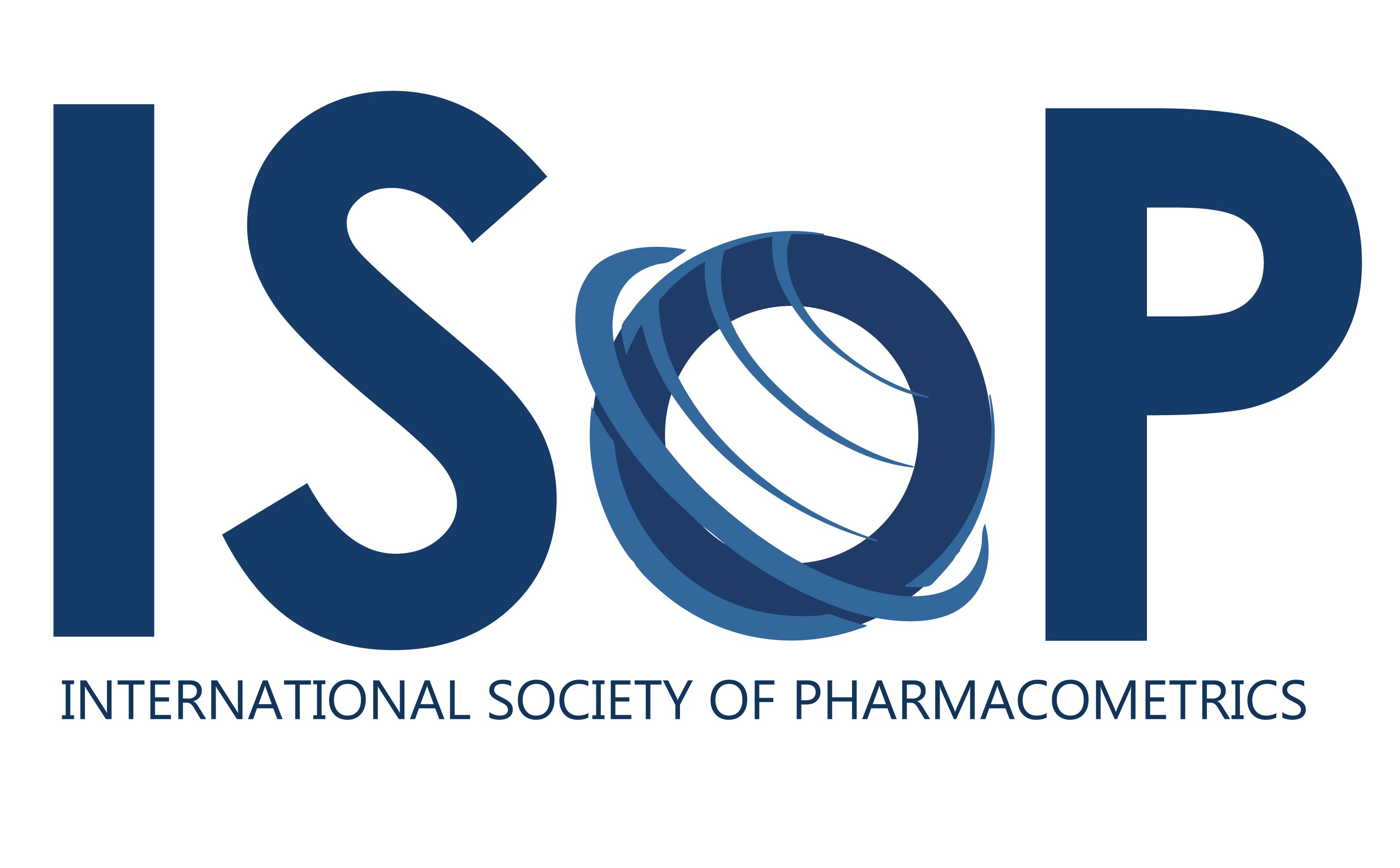
Catalog Advanced Search
-
Contains 1 Component(s) Includes a Live Web Event on 11/11/2025 at 12:00 PM (EST)
The MIDD Webinar Series, coordinated by Yash Kapoor and Fulya Akpinar Singh, is a series of webinars focused on shaping the future of drug development and regulatory decision-making sponsored by the ISoP Education Committee. Topics range from MIDD approaches in regulatory submission to pharmacometrics topics that are at the core of model development.
The MIDD Webinar Series, coordinated by Yash Kapoor and Fulya Akpinar Singh, is a series of webinars focused on shaping the future of drug development and regulatory decision-making sponsored by the ISoP Education Committee. Topics range from MIDD approaches in regulatory submission to pharmacometrics topics that are at the core of model development.

Prashant Dogra
Assistant Research Professor
Houston Methodist Research Institute
Prashant Dogra is an Assistant Research Professor for the Mathematics in Medicine Program at Houston Methodist Research Institute specializing in mathematical and computational modeling of complex diseases and therapeutic interventions. He leads interdisciplinary research integrating multiscale mechanistic modeling, quantitative systems pharmacology, and data science to predict in vivo disease dynamics, optimize drug delivery, and support therapeutic development. His work advances the fields of cancer therapeutics, infectious disease vaccines, and nanomedicine by providing innovative modeling tools to accelerate clinical translation. He is particularly enthusiastic about integrating artificial intelligence with mechanistic modeling approaches and currently serves as Principal Investigator on an NIH R01 grant focused on developing AI-integrated mechanistic models to advance nanoparticle-based drug delivery systems.
-
You must log in to register
- Non-member - $25
- Member - Free!
- Guest User - $25
- More Information
-
You must log in to register
-
Contains 1 Component(s) Includes a Live Web Event on 10/14/2025 at 12:00 PM (EDT)
The MIDD Webinar Series, coordinated by Yash Kapoor and Fulya Akpinar Singh, is a series of webinars focused on shaping the future of drug development and regulatory decision-making sponsored by the ISoP Education Committee. Topics range from MIDD approaches in regulatory submission to pharmacometrics topics that are at the core of model development.
The MIDD Webinar Series, coordinated by Yash Kapoor and Fulya Akpinar Singh, is a series of webinars focused on shaping the future of drug development and regulatory decision-making sponsored by the ISoP Education Committee. Topics range from MIDD approaches in regulatory submission to pharmacometrics topics that are at the core of model development.

Eleni Caratzas, MSc, PhD
Principal Scientist II
IM/Janssen R&D
Eleni Caratzas (Karatza), MSc, PhD, is a Principal Scientist II at J&J IM/Janssen R&D. She completed her undergraduate and master’s degrees in pharmacy at the University of Athens, Greece. Following her studies, she started working as a scientist-consultant at a pharmaceutical consulting firm. After earning her PhD, she started her postdoctoral fellowship with the UNC Eshelman School of Pharmacy and GSK. Dr. Karatza has published over 25 peer-reviewed articles and book chapters in the field of clinical pharmacology and pharmacometrics. An active ISoP member since 2018, she has supported various ISoP and ACoP initiatives and she was awarded the ISoP Unsung Hero Award in 2024.
-
You must log in to register
- Non-member - $25
- Member - Free!
- Guest User - $25
- More Information
-
You must log in to register
-
Contains 1 Component(s) Includes a Live Web Event on 10/07/2025 at 12:00 PM (EDT)UPCOMING LIVE!
Summary Coming Soon
Description Coming Soon
-
You must log in to register
- Member - Free!
- More Information
-
You must log in to register
-
Contains 1 Component(s) Includes a Live Web Event on 09/23/2025 at 12:00 PM (EDT)
The MIDD Webinar Series, coordinated by Yash Kapoor and Fulya Akpinar Singh, is a series of webinars focused on shaping the future of drug development and regulatory decision-making sponsored by the ISoP Education Committee. Topics range from MIDD approaches in regulatory submission to pharmacometrics topics that are at the core of model development.
The MIDD Webinar Series, coordinated by Yash Kapoor and Fulya Akpinar Singh, is a series of webinars focused on shaping the future of drug development and regulatory decision-making sponsored by the ISoP Education Committee. Topics range from MIDD approaches in regulatory submission to pharmacometrics topics that are at the core of model development.

Martin Bergstrand
Principal Consultant and MIDD Platform Science Lead
Pharmetheus
Martin obtained his PhD in Pharmacometrics from Uppsala University. He has 20+ years of drug development experience in areas such as metabolic disorders, autoimmune disease, infectious disease, hematological disorders etc. In 2012 Martin co-founded the consulting company Pharmetheus AB. In the consultant role he has been engaged as strategic advisor on behalf of multiple clients and acted as the main responsible consultant for 50+ pharmacometric data analysis projects on behalf of more than 20 different clients. The projects have ranged from pre-clinical translational projects to submission ready large-scale phase III PKPD analysis. These analyses have among other things contributed to 5+ successful NDA filings.

Gianluca Selvaggio
Gianluca obtained an M.Sc. in Biomedical engineering from University of Bologna, Italy, and Ph.D. in Bioengineering from the New University of Lisbon, Portugal. He is an expert in quantitative systems pharmacology (QSP) modelling spanning therapeutic areas such as oncology and immuno-inflammation. He has worked as a Senior Modeler at the Fondazione Microsoft Research – University of Trento Centre for Computational and Systems Biology. During his time at Pharmetheus he has among other things contributed to the development of a QSP framework for drug immunogenicity following subcutaneous administration.
-
You must log in to register
- Member - Free!
- More Information
-
You must log in to register
-
Contains 1 Component(s) Includes a Live Web Event on 08/27/2025 at 12:00 PM (EDT)
This webinar explores how Model-Informed Drug Development (MIDD) supports drug development and patient care by informing dosing strategies beyond clinical trial data. Through real-world case examples—such as guiding dosing after treatment interruptions and optimizing dosing for an ocular implant—we’ll highlight how MIDD aids decision-making, streamlines development, and reduces patient burden without additional trials.
Model-Informed Drug Development (MIDD) can be a valuable tool to support drug development and advance patient care, especially in assessing benefit-risk of different dosing regimens, bridging between different routes of administration, or when considering dosing recommendations in specific situations not specifically evaluated in clinical trials. For example, by leveraging available clinical data to assess alternative dosing intervals, MIIDD approaches can potentially inform treatment options that reduce frequency or number of patients visits or inform handing of missed/interrupted dosing without the need of additional clinical trials.
In this webinar, we will discuss several case examples where MIDD approaches were used to support the approval of dosing regimens or dosing strategies not directly studied in clinical studies. Some of the specific examples will include use of MIDD approaches to guide dosing recommendations following dosing holidays for bispecific therapeutics and to guide dose selection during clinical development of an ocular implant designed to reduce patient treatment burden. Each of the examples will highlight the question that the MIDD approach was intended to answer, the role of the model in addressing the question, interactions between groups to achieve alignment on the approach and interpretation of the modeling, and overall outcome of the effort.
-
You must log in to register
- Non-member - Free!
- Member - Free!
- Guest User - Free!
- More Information
-
You must log in to register
-
Contains 1 Component(s) Includes a Live Web Event on 08/13/2025 at 12:00 PM (EDT)
The MIDD Webinar Series, coordinated by Yash Kapoor and Fulya Akpinar Singh, is a series of webinars focused on shaping the future of drug development and regulatory decision-making sponsored by the ISoP Education Committee. Topics range from MIDD approaches in regulatory submission to pharmacometrics topics that are at the core of model development.
The MIDD Webinar Series, coordinated by Yash Kapoor and Fulya Akpinar Singh, is a series of webinars focused on shaping the future of drug development and regulatory decision-making sponsored by the ISoP Education Committee. Topics range from MIDD approaches in regulatory submission to pharmacometrics topics that are at the core of model development.

Jing Liu
Senior Director of Clinical Pharmacology
Pfizer Research and Development
Jing Liu, PhD, is currently a Senior Director of Clinical Pharmacology at Pfizer Research and Development. Dr. Liu is an influential leader in innovative model-informed drug discovery and development with over 25+ years of experience across multiple disease areas, drug modalities and all stages of drug development. She has authored 150+ scientific manuscripts, abstracts and book chapters, and has been an invited speaker/Co-Chair at international scientific meetings including scientific exchanges on accelerating pediatric drug development with PMDA in Japan and NMPA in China. Dr. Liu is currently a member of the American Society for Clinical Pharmacology and Therapeutics (ASCPT) Board of Directors, and has held leadership roles on various committees, task forces, and ASCPT Network and Community. She is also a founding member of International Society of Pharmacometrics (ISOP) and the Abstract Chair for 2014 American Conference of Pharmacometrics (ACOP). Dr. Liu is the Past-Chair and a member of the International Consortium for Innovation and Quality (IQ) Clinical Pharmacology Pediatrics Working Group to advance innovative and efficient pediatric drug development.
-
You must log in to register
- Non-member - $25
- Member - Free!
- Guest User - $25
- More Information
-
You must log in to register
-
Contains 1 Component(s) Includes a Live Web Event on 07/16/2025 at 12:00 PM (EDT)
The MIDD Webinar Series, coordinated by Yash Kapoor and Fulya Akpinar Singh, is a series of webinars focused on shaping the future of drug development and regulatory decision-making sponsored by the ISoP Education Committee. Topics range from MIDD approaches in regulatory submission to pharmacometrics topics that are at the core of model development.
The MIDD Webinar Series, coordinated by Yash Kapoor and Fulya Akpinar Singh, is a series of webinars focused on shaping the future of drug development and regulatory decision-making sponsored by the ISoP Education Committee. Topics range from MIDD approaches in regulatory submission to pharmacometrics topics that are at the core of model development.

Phyllis Chan
Pharmacometrician in Clinical Pharmacology Modeling & Simulation Group
Genentech
Phyllis is a pharmacometrician in the Clinical Pharmacology Modeling & Simulation group at Genentech in South San Francisco. Before joining Genentech in 2017, Phyllis worked at Bristol-Myers Squibb, obtained her PhD in Pharmaceutical Sciences from Auburn University and was a postdoctoral fellow at University of Southern California's Biomedical Simulations Resource (BMSR). More recently, Phyllis received an MPH from Imperial College London. She specializes in population PK, exposure-response, tumor growth inhibition-overall survival, and model-based meta-analysis.
-
You must log in to register
- Non-member - $25
- Member - Free!
- Guest User - $25
- More Information
-
You must log in to register
-
Contains 1 Component(s) Recorded On: 06/26/2025
The ISoP QSP SIG hosted its 4th fully-student-focused Virtual Student QSP Symposium on June 13th, 2024. This event allowed current students and trainees to learn about training and career paths and share their work with each other and professionals in the field. The Symposium featured a stellar line-up of speakers and panelists from industry and academia.
The ISoP QSP SIG hosted its 4th fully-student-focused Virtual Student QSP Symposium on June 13th, 2024. This event allowed current students and trainees to learn about training and career paths and share their work with each other and professionals in the field. The Symposium featured a stellar line-up of speakers and panelists from industry and academia.
-
You must log in to register
- Member - Free!
- Guest User - Free!
- More Information
-
You must log in to register
-
Contains 1 Component(s) Recorded On: 06/24/2025On-Demand
Great data visualization is more than just charts—it’s about effective communication. This session explores principles of design that make data clear, efficient, and beautiful, ensuring your audience grasps key insights at a glance. Learn how to craft visualizations that not only look good but also enhance understanding and tell a compelling story with your data.
Great data visualization is more than just charts—it’s about effective communication. This session explores principles of design that make data clear, efficient, and beautiful, ensuring your audience grasps key insights at a glance. Learn how to craft visualizations that not only look good but also enhance understanding and tell a compelling story with your data.

Dr. Cédric Scherer
Dr. Cédric Scherer (he/him) is a computational ecologist turned independent data visualization professional. Combining research expertise with a passion for data and design, he helps organizations, research teams, and businesses communicate insights through engaging visualizations, reports, and presentations. Specializing in bespoke, code-driven designs—from clear and effective to artistic and unconventional—Cédric has created visualizations across various disciplines and regularly teaches data visualization principles, R, and ggplot2.
-
You must log in to register
- Member - Free!
- More Information
-
You must log in to register
-
Contains 1 Component(s) Recorded On: 06/18/2025
The MIDD Webinar Series, coordinated by Yash Kapoor and Fulya Akpinar Singh, is a series of webinars focused on shaping the future of drug development and regulatory decision-making sponsored by the ISoP Education Committee. Topics range from MIDD approaches in regulatory submission to pharmacometrics topics that are at the core of model development.
The MIDD Webinar Series, coordinated by Yash Kapoor and Fulya Akpinar Singh, is a series of webinars focused on shaping the future of drug development and regulatory decision-making sponsored by the ISoP Education Committee. Topics range from MIDD approaches in regulatory submission to pharmacometrics topics that are at the core of model development.

Rong Chen
Research Scientist
Certara
Rong is a research scientist at Certara USA Inc’s Data Sciences Division Phoenix NLME group. His responsibility involves maintaining, improving, and developing the existing and new computational and statistical algorithms for Phoenix NLME software. Rong got his nuclear physics PhD at Arizona State University in 2020. The PhD focused on large-scale quantum Monte Carlo simulations. Prior to join Certara in 2023, Rong was a postdoctoral research fellow at Children’s Hospital Los Angeles where he developed high performance parametric and nonparametric algorithms for population pharmacokinetics/pharmacodynamics (PK/PD) modeling.
-
You must log in to register
- Member - Free!
- More Information
-
You must log in to register








